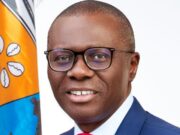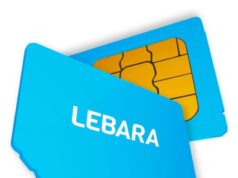Nigeria’s 9mobile on Friday re-branded itself as T2, aiming to become a digital-first telecom operator focused on innovation and customer experience.
The Chief Executive Officer, Obafemi Banigbe described the rebranding as a strategic overhaul rather than just a new name.
“We are no longer who we were; we are becoming something greater, more ambitious, and more in tune with the future,” he said at the launch in Lagos.
The event was attended by the Minister of Communications and Digital Economy, Dr Bosun Tijani, alongside other industry stakeholders.
T2 plans to transition into a fully digital operator, leveraging cloud infrastructure, artificial intelligence and advanced analytics to deliver personalised products and faster service rollouts.
This approach aims to serve Nigeria’s burgeoning population of startups, creatives and remote workers, who are driving demand for agile and accessible digital solutions.
Banigbe acknowledged the past difficulties but said they had forged resilience.
“Our challenges are reminders, not defeats,” he said, underscoring the company’s renewed focus on embedding customer experience at its core.
The CEO expressed gratitude to regulators, shareholders, partners and staff, dedicating the rebranding to “every Nigerian dreaming of something better.” He urged the country to “reimagine, rebuild and relaunch.”
The rebrand follows a significant three-year national roaming agreement signed in July with MTN Nigeria, the country’s largest telecom operator. Approved by the Nigerian Communications Commission, the deal allows T2 customers to access MTN’s extensive network nationwide, improving coverage and service quality, particularly in underserved areas. The partnership highlights a broader trend toward collaboration among Nigerian telecom firms seeking to optimise resources amid intense competition.
9mobile’s origins date back to 2008, when it launched as Etisalat Nigeria, a joint venture between UAE-based Etisalat Group, Mubadala Development Company and Nigerian investors. Early on, the company gained market share by introducing 3G and 4G LTE services, targeting Nigeria’s youth market and growing its subscriber base to over 15 million by 2012.
However, regulatory challenges, financial distress and fierce competition eventually took their toll. By 2017, mounting debts of approximately $1.2bn forced Etisalat Group’s exit. The company subsequently restructured, rebranding as 9mobile and undergoing ownership changes, with Teleology Holdings Limited acquiring a controlling stake in late 2018.
Credit: punchng.com










































































